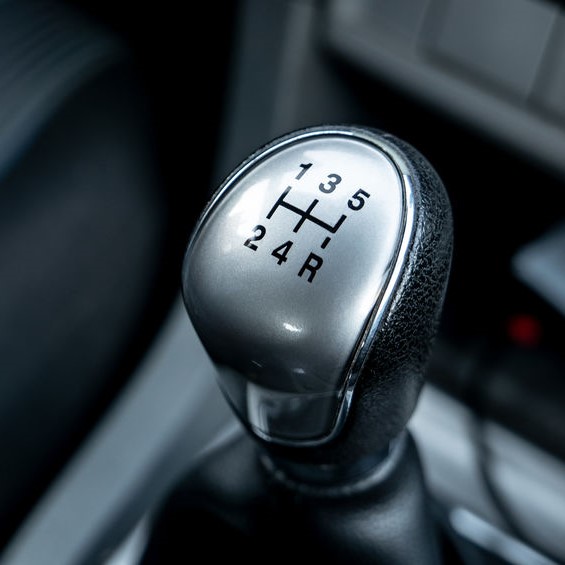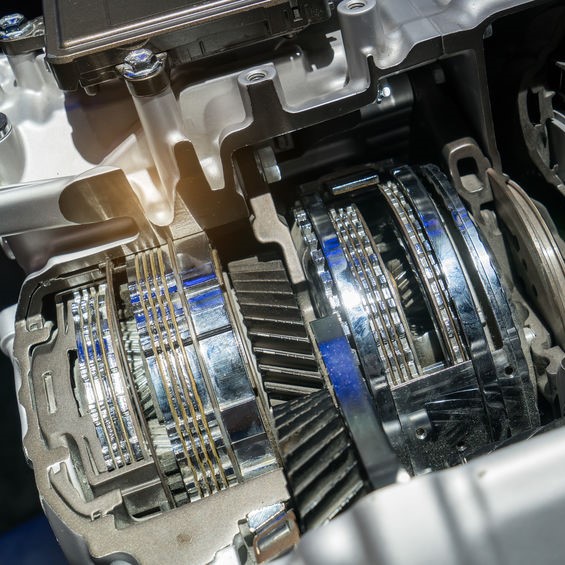
What are signs of transmission problems?
In addition to the engine, your vehicle needs a transmission too. Like the engine, it needs maintenance and a transmission tune up periodically to keep it going. The purpose of a transmission is transfer power from the engine to the driveshaft and rear wheels of a rear-wheel-drive vehicle. Inside the transmission are gears that change the speed and torque of the vehicle in relative to engine speed and torque.
When your vehicle begins acting differently, you notice it because you it better than anyone. This includes hearing a strange sound, noticing an odd odor, or maybe it’s handling differently as you drive it. A proper diagnosis is needed, and when your vehicle is driving different or doing any of the following, it could indicate transmission problems:
- Not engaging or staying in gear
If your vehicle won’t move while in gear or move, it may be low or out of transmission fluid, the shifter or shifter cable could be broke. Taking your car to a transmission mechanic for a transmission tune up and inspection. The mechanic can tell you that would a transmission tune up help or not. - Delayed shift or gears
When a transmission doesn’t won’t go in gear, it is often a fluid issue, possible contamination, or leak. It can also be from intruding water from the roadways. - Slipping transmission or a high-revved engine
This problem is usually caused by lack of maintenance, intruding water, internally worn out, constantly low fluid. When the engine is revving high, the transmission is gone out or in a standard shift, it could be the clutch has gone out. - Leaking Fluid
If you get in your car and see red fluid underneath it, that is likely a transmission fluid leak from a cooler lines, gaskets, seals. A professional mechanic with transmission experience will do an inspection and a transmission tune up. This will assist them in finding where the leak is coming from and to proceed with repairs. - A Burning Odor
A burning odor is usually because of fluid leaking or low fluid that is causing the clutch to burn. When these things are caught early on, it is repairable. - Noises Like Buzzing, Clunking, Humming
Any noise like a buzz, click, hum, or a roar is symptomatic of a bad bearing, gear damage, or some internal problem. - Vehicle Doesn’t Have Power
When your vehicle is running but doesn’t have any power, this is likely the transmission with internal issues. A transmission tune up and inspection will help a professional ascertain the problem and advise how to fix the transmission or replace the unit. - Check Engine Light Staying On
- A check engine light isn’t always a problem with the engine only, sometimes it is letting you know there is another problem, possibly the transmission. When the transmission is overheating, slipping or having problem with the solenoid or speed sensors. Taking your vehicle in for a transmission tune up will give the mechanic the opportunity to find the problem and suggest the best option, slipping transmission and many other problems.
How often should you get a transmission tune up?
A transmission tune up should be done according to your owner’s manual, which will depend on whether you have an automatic or manual transmission. For and automatic transmission, every 60,000 to 100,000 miles is recommended. For a car with a manual transmission, every 30,000 to 60,000 miles is recommended. During the time between your transmission tune ups, there are things you need to check as an owner, such as checking the transmission fluid on a regular basis.
How do you know when you need a transmission tune up?
The engine gets a lot of credit for making your vehicle move, but it takes more components than the engine. There are several components and systems working together for a vehicle to move. The transmission does a lot to make a motivates a vehicle. Without the transmission, you wouldn’t go anywhere, which is why transmission tune ups are essential. Not everyone knows how to tune up a transmission, but everyone should know what issues need a professional transmission inspections:
A Whining Noise: There is a torque converter inside every automatic transmissions that use needle pins. If the needle pins are wearing or worn out, the transmission will begin whining while the vehicle is sitting still. Any funny noise at any time indicates possible problems with your transmission and should be taken to a professional mechanic. It may need nothing more than a transmission tune up, but it needs professional attention.
A Grinding Noise: A grinding metallic sound when your vehicle is shifting is a strong indication that you need professional transmission service. Usually this is because the transmission has been running low our out of transmission fluid. This can be avoided by checking the transmission fluid on a regular basis and having a transmission tune up as recommended by the manufacturer or your mechanic.
A Delayed Shifting: If the RPM gauge on your car is skyrocketing as it shifts, you need a mechanic to check your transmission out, which could be caused by a low level of transmission fluid.
Popping out of Gear: When an automatic transmission shifts unexpectedly between gears or a manual transmission pops into neutral unexpectedly, get your vehicle to your mechanic as soon as possible. This can create a dangerous issue because it will make your car difficult to control.
Transmission Fluid Leaking: Any reddish fluid under your vehicle while sitting still is a sign of transmission fluid leak. A transmission tune up and inspection is needed immediately by your mechanic.
What comes with a major tune up?
A routine scheduled complete and transmission tune up will give you vehicle a longer lifespan and save you money too. The basics that are included in a major tune up include:
- Fuel Filter – This is replaced along with the sparkplugs, and if your car has one, the distributor cap and rotor are replaced.
- Valves – The valve-cover gasket is replaced after the valves are adjusted. Worn belts are replaced too.
- Filters, Fluids, Oil – The oil and oil filter should be replaced ever 3,000 miles or with the suggested schedule in the owner’s manual. The air filter should be replaced very 15,000 unless the mechanic finds an issue that requires an earlier change. The windshield wiper fluid will be checked along with the windshield wipers.
- Clutch Adjusted – A manual transmission vehicle, the complete tune up will include adjusting the clutch and an automatic transmission vehicle will have a basic transmission tune up.
- Electrical System – A complete major tune up includes checking the battery and leaning the connections.

Can a transmission flush hurt your transmission?
It has been said that a transmission flush does more harm to a car than it helps because it dislodges debris and clogs the transmission line. However, if you have routine transmission tune up, that is less likely not to happen. This has been known to happen when the garage used a machine that forces the fluid back into the transmission instead of gently flushing the transmission.
The error by the garage is because the mechanic doing the job didn’t know the difference between a transmission tune up vs flush. A transmission tune up will including adding to the transmission fluid if it low. A transmission fluid flush will completely remove all old fluid and add new transmission fluid.
If you can’t afford to take your car in for a professional transmission tune up, it may be recommended to do a transmission tune up in a can. What is a transmission tune up in a can? This is a product available over-the-counter at your local auto parts retail store. The idea behind the product is pour the product where the transmission fluid. It then fixes some of the issues we’ve discussed in this article. Call 310 672-8131 today for your transmission service needs.
